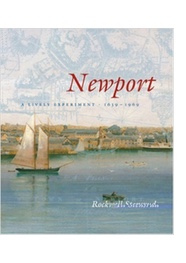The Sound of Bigotry
We know the friendly babel of a baby’s patter, the neutral background buzz in a crowded café. We can imagine the unfriendly click of a pistol being cocked nearby. Sounds deserve discrimination.
 We
hear thousands of sounds daily, natural and man-made. The rhythmic
clack-clack of a train’s steel wheels on the tracks, the whoosh of
gusting autumn wind ruffling oak and maple leaves. We are so familiar
with their repetition—what they represent, what they predict—that
they rarely register at a conscious level. The slamming of a car
door, a barking dog, the barely audible human sigh. We let them go.
We
hear thousands of sounds daily, natural and man-made. The rhythmic
clack-clack of a train’s steel wheels on the tracks, the whoosh of
gusting autumn wind ruffling oak and maple leaves. We are so familiar
with their repetition—what they represent, what they predict—that
they rarely register at a conscious level. The slamming of a car
door, a barking dog, the barely audible human sigh. We let them go.
What are the sounds that oblige us to respond? The sinister ones, the voices freighted with words demanding immoral reckoning.
What is the sound of bigotry?
If we could go back to the year 360 and hear Roman emperor Julian denigrate Christianity by mandating the worship of pagan gods, or the edict of King Edward I in 1290 outlawing Jews from England, or the brutal twentieth-century prejudices of Hitler and Mussolini, most of us would decry those voices of sanctimony and xenophobia.
We hear their words as the sound of bigotry.
Today in America we can turn on a radio or television or attend a public rally and listen to a panting politician unleash verbal whacks on the Constitution and Bill of Rights. We can hear bigotry at full throttle in the whine of a presidential candidate’s stump speeches, in that clatter fast voice rising and sputtering like a spoiled child wailing that someone stomped on his Lego set.
Bigotry has a new voice.
We hear him blame the supposed bedlam in our land on the behavior of foreigners who sneak across our broad borders and threaten his imagined empire. Mexicans. Muslims. His voice has the squeak of a cartoon character’s when he brags of his billions. He’s practiced in giving bigotry its due—you hear the timbre of his intolerance, the patois of his provincialism. We hear the insecurity of a man out of his depth.
Bigotry has long had a voice in American politics. It has an East Coast edge, a Midwest flatness, a Southern drawl, a West Coast slackness. It can be heard on any street corner or mall or auditorium.
Many people heard the hate in Boston minister John Cotton’s sermons denouncing freedom of conscience in the 1640s, in the Protestant politicians of the Know-Nothing Party in the 1850s urging a ban on Irish and German Catholics from entering the United States, in Father Coughlin’s diatribes against Jews in the 1930s, in Joe McCarthy’s fantasies about Communists in the 1950s, and in George Wallace’s racial rants in the 1960s.
Bigotry has a voice. It’s back again, louder.
Sometimes bigotry emerges as bluff bluster, an attempt to shield lies; sometimes in the whir of a deceitful plea to convince an audience of the speaker’s deep-seated concern for the very person or nationality or ethnic group or religious belief or sexual orientation he is accusing of being un-American, dangerous, depraved, deportable.
Bigotry’s voices beget bigotry’s repercussions.
Are someone’s pipe bombs, car bombs, suicide bombs about to be detonated in community centers, discos, and places of worship? Against whom? Are those gunshots from an automatic rifle that we hear from the school down the street?
Listen carefully. Why are those children crying?
These are the sounds that bigotry provoke.